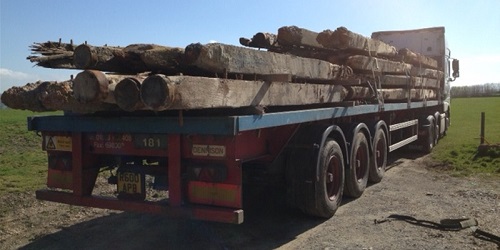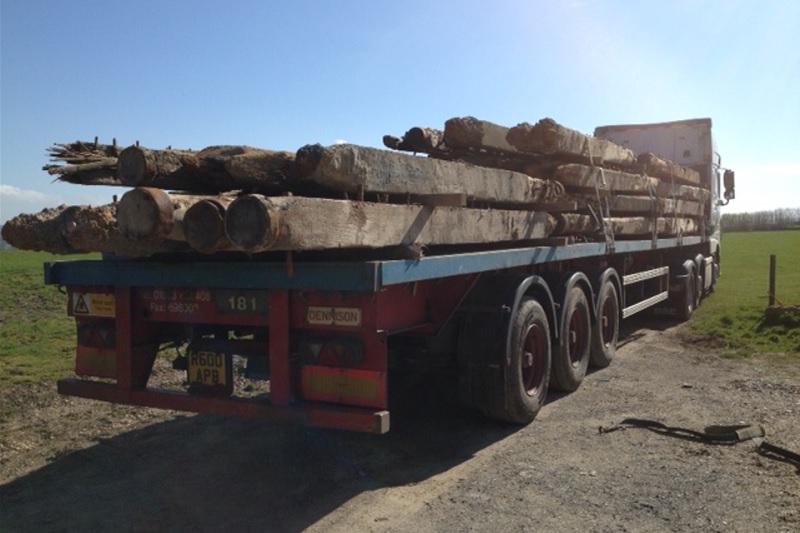
In line with Mackley’s commitment and focus on sustainability, sea-distressed timber – taken from groynes demolished as part of a scheme on the Kent coast – has been put to good use at Exmoor National Park.
Working in conjunction with Howard Gibbons Reclamation, the timber – taken from Hythe Range Sea Defence project – was cut, shaped and adapted to form fence posts on the Devon banks.
Howard Gibbons said: “The field system of Exmoor is formed by Devon banks that were generally a row of beech trees with soil and turf banked up.
“Every 20 years the top part of the tree is partially cut and laid horizontally along the bank and replenished with soil to form shoots that get laid in the following 20 year cycle.
“If the banks aren’t protected with a fence, each side the sheep climb up and erode them Therefore, Exmoor needs double the amount of fencing for any given length of hedge.
“Since the restrictions on wood preservative, normal softwood posts can last as little as three years before needing replacement. Being as careful as they are, few farmers can justify the outlay of buying new posts en masse.
“However, through the use of the old timber from Hythe, this fence could last for generations.”
Preparing a post
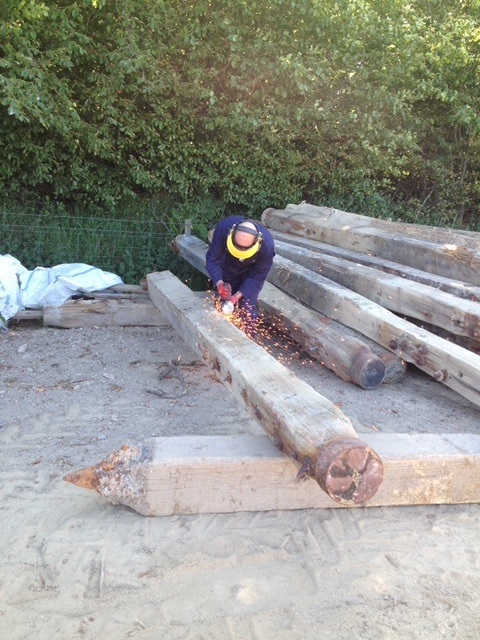
Devon bank unprotected
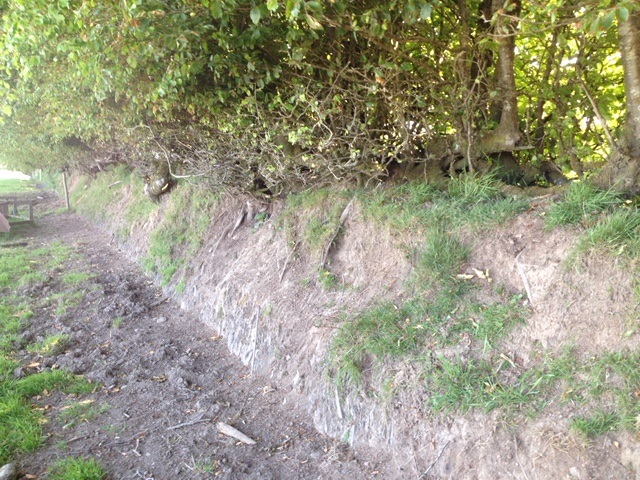
Protected bank showing Hythe post
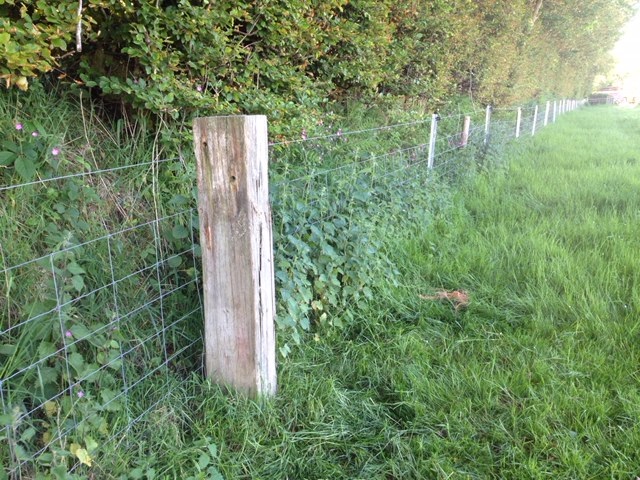
Mid-field Hythe post used in paddock grazing system
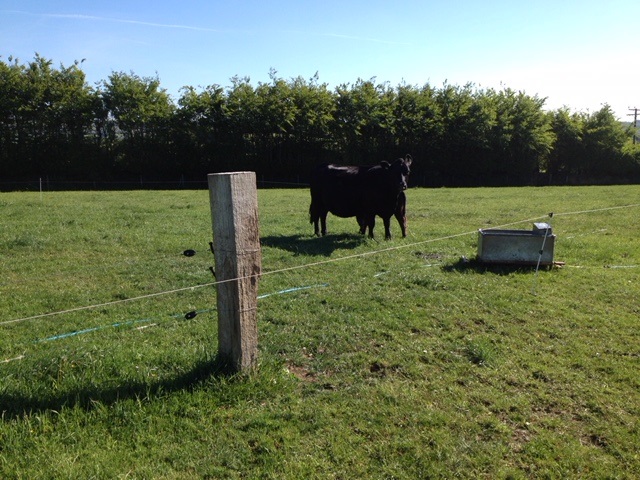
Putting recycled timber to good use
This is the latest in a number of ways Mackley has found to put redundant groynes and other timber to good use.
Earlier this year, Mackley made a second donation to St Barnabas – a Worthing-based hospice which provides palliative care to adults with advanced progressive life-limiting illnesses.
The hospice used the groynes to create vegetable patches in their communal garden – having previously created flower beds.
In 2018, a number of timber groynes removed from Shoreham beach as part of a previous Mackley project were put to good use by a scout group in West Sussex.
Prior to that, recycled groynes were used to create a raised herb garden for the commercial kitchens at Field Place Manor House in Worthing, and to create flower beds as part of the Transition Town Worthing project.
Recycled timber from Mackley projects was also used to create a timber terrace and fenders at Orchard Wharf on the River Thames in London’s Docklands.
05 June 2020
